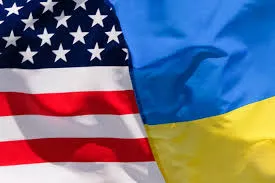A US court has rejected the habeas corpus petition filed by Tahawwur Rana, a Canadian businessman of Pakistani origin, thereby allowing US Secretary of State Antony Blinken to proceed with his extradition to India. Rana is wanted for his alleged involvement in the 2008 Mumbai terror attacks, commonly referred to as the 26/11 attacks. In a significant win for India’s pursuit of justice for the Mumbai attacks, the US court granted approval for Rana’s extradition in May.
Although detained at the Metropolitan Detention Centre in Los Angeles, Rana filed a “writ of habeas corpus” in June, challenging the court’s decision to extradite him to India. However, this petition was denied by Judge Dale S Fischer, United States District Judge for the Central District of California, on August 10. In response, Rana has filed an appeal against this denial and has sought a stay on his extradition until his appeal is heard by the Ninth Circuit Court.
Rana is accused of playing a role in the 2008 Mumbai attacks and has connections with David Coleman Headley, a Pakistani-American terrorist who was a key conspirator in the attacks. Rana’s arguments in his habeas corpus petition focused on two main points: firstly, that he cannot be extradited under the treaty because he had been charged and acquitted in a US court for the same actions; secondly, he claimed that there wasn’t sufficient evidence to establish probable cause that he committed the Indian offenses for which he is sought to be tried.
Judge Fischer rejected both of Rana’s arguments, asserting that there was competent evidence to support the probable cause finding, even if it was based solely on David Headley’s testimony. Rana’s attorneys subsequently appealed the decision and requested a stay on the extradition process, emphasizing that Rana’s appeal had strong grounds, he could face irreparable harm, and that a stay pending appeal would serve the public interest.
The Biden administration had also expressed its support for denying Rana’s habeas corpus petition, and India had filed a complaint in 2020 seeking Rana’s
provisional arrest for extradition. The US government’s position was that Rana should indeed be extradited to India.
The Mumbai attacks, carried out by terrorists belonging to the Pakistan-based Lashkar-e-Taiba group, had caused deaths of 166 people, including six Americans. The attacks lasted over 60 hours and targeted iconic locations in Mumbai.

















